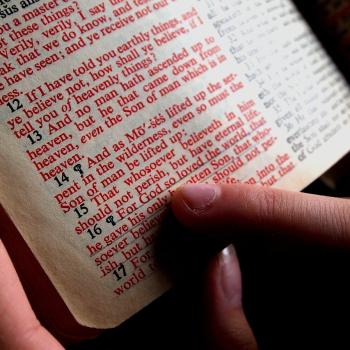A long-standing debate regarding Roman 9 continues among informed laity, church denominations, theologians, and scholars on whether Paul teaches divine determinism in this passage. Does the passage teach double predestination and unconditional election of individuals? Do humans have a free choice if God elects some but rejects others? If God does the choosing and rejecting, why does he punish those whom he rejects as though they were at fault?
In this study on the subject, we will take a look at the tensions in Romans 9 and discuss first-century Jewish perceptions of divine determinism, which may have influenced Paul.

Romans 9: The Controversies
Paul, quoting the Old Testament (Genesis 25:23), speaks of God’s disclosure to the matriarch Rebecca while she was still pregnant with twins. God determines that the older twin would serve the younger. This is stated before either son could do anything good or bad—Esau happens to be the older son and Jacob the younger. God also claims that he loves Jacob but hates Esau (Rom 9:10–13; cf. Malachi 1:2–3).
In this passage, an imagined interlocutor raises two questions for Paul. First, he questions whether God is just for selecting Jacob over Esau (Rom 9:14). Paul claims that God has mercy on whomever he wills, and he hardens whomever he wills. The apostle refers to Exodus 9, a passage where it is said that God hardened Pharaoh’s heart so that he refused to let the children of Israel go from Egypt (Rom 9:15–18).
Second, the interlocutor questions why God finds fault with Pharaoh and other humans, for who can resist what God has determined for them to do (9:19)? Paul rebukes the questioner and then gives an illustration analogously relating God to a potter and humans as the clay. The clay has not right to question what the potter does when shaping the clay into a vessel for the potter’s purpose. God has every right to make one vessel for honorable use, and another for dishonorable use. God shapes certain “vessels of wrath” for destruction while the “vessels of mercy” are prepared beforehand for glory (9:19–23). That glory seems to be indicating eternal life and resurrection (see Romans 8:18, 29–30).
Calvinist and Reformed theologians have affirmed that Romans 9 is clear evidence that the Bible teaches double predestination of individuals. Arminian and Wesleyan theologians have denied that this is what Romans 9 means. They often affirm instead that the passage contextually refers to Israel and gentiles, two peoples rather than individuals. The Old Testament passages Paul cites ultimately serve to refer to God’s election of Jews and gentiles.
A number of biblical scholars maintain that Romans 9 must be read together as one unit with Romans 10–11, or the reader risks misinterpreting Paul. One must read Romans 9–11 together to discern fully that Paul is speaking about the election and salvation of the people of Israel, along with the gentiles, rather than the salvation and condemnation of individual humans as such.
So who is right?
The passage actually has a long interpretative history that is worth addressing. It dates back before the Protestant Reformation and the Calvinist and Arminian theologies that emerged from it. We will begin by first taking a look at some first-century Jewish viewpoints on divine determinism and human freedom that may have influenced Paul.
Divine Determinism in the First-Century Sects of Formative Judaism
It is clear that during the first century different Jewish groups had competing perspectives regarding predestination, divine election, and determinism and freewill. Notable among these groups was the Yahad or community in Qumran, from where we discovered the Dead Sea Scrolls.[1] A number of scholars suggest this group may have been the Essenes. Josephus refers to the group when discussing three major sects of Judaism and their views regarding determinism:
“Now for the Pharisees, they say that some actions, but not all, are the work of fate, and some of them are in our own power, and that they are liable to fate, but are not caused by fate. But the sect of the Essenes affirm, that fate governs all things, and that nothing befalls men but what is according to its determination. (173) And for the Sadducees, they take away fate, and say there is no such thing, and that the events of human affairs are not at its disposal; but they suppose that all our actions are in our own power, so that we are ourselves the cause of what is good, and receive what is evil from our own folly” (Josephus, Antiquities 13. 172-73).[2]
Of these three perspectives, the view that Paul would most naturally gravitate towards would be the one he learned—he was a Pharisee before believing in Jesus as Messiah (Philippians 3:4–8). As such, the moderate view of determinism would almost surely have been his perspective, at least until he encountered Jesus on the way to Damascus in Acts 9.
Even as a believer in Christ, we find the apostle holding in tension together a view that seems to honor both divine sovereignty and human freedom. He exhorts believers in Philippi to work out their own salvation with “fear and trembling” (Philippians 2:12). At the same time he also claims that it is God who works among them, both the willing and doing of his good pleasure (Phil 2:13). The Philippians are thus required and responsible for being obedient to God, and yet they can be assured that God empowers them for that very task.
Had these verses been written by the three Jewish sects Josephus mentioned, and we had to decide who wrote what, I suspect that most votes would be given to the Sadducees for writing Phil 2:12. The Essenes would be given the most votes for writing Phil 2:13. On the other hand, the Pharisees, like Paul, would seem to be most likely to embrace both verses. Paul’s view on such things probably would not be much different than what the early rabbinic writing, the Mishnah, claimed: “All is foreseen, but freedom of choice is given” (m. Pirqe Abot 3:16[15]; Danby tr.).
Reflection
We can affirm from Scripture that Paul inherited a Pharisaic balance on fate and freewill when he first became a believer in Christ. We cannot affirm with certainty that he still held to that balance later on, but Philippians 2:12–13 does lend itself to that possibility. What is perhaps more important, however, is for us to examine closely Paul’s own words in Romans 9. As well, a survey on how various theologians throughout church history have interpreted this chapter would seem to be in order. So stay tuned…
Notes
[1] See E. H. Merrill, Qumran and Predestination: A Theological Study of the Thanksgiving Hymns, JSJSup 7 (Leiden: Brill, 1975); cf. 1QS xi 10–11, 17–18; CD A ii 2–10; 1QHa vii 15–28. For early Judaism in on the subject, see Gabriele Boccaccini, “Determinism,” in T. & T. Clark Encyclopedia of Second Temple Judaism, ed. Daniel M. Gurtner and Loren T. Stuckenbruck (London: T. & T. Clark, 2020) 2:201–02.
[2] William Whiston, tr. The Works of Josephus: Complete and Unabridged (Peabody: Hendrickson, 1987), 346.
Image 1: hand puppet snowman via pixabay.com; Image 2: painting creativity cloud girl via pixabay.com













